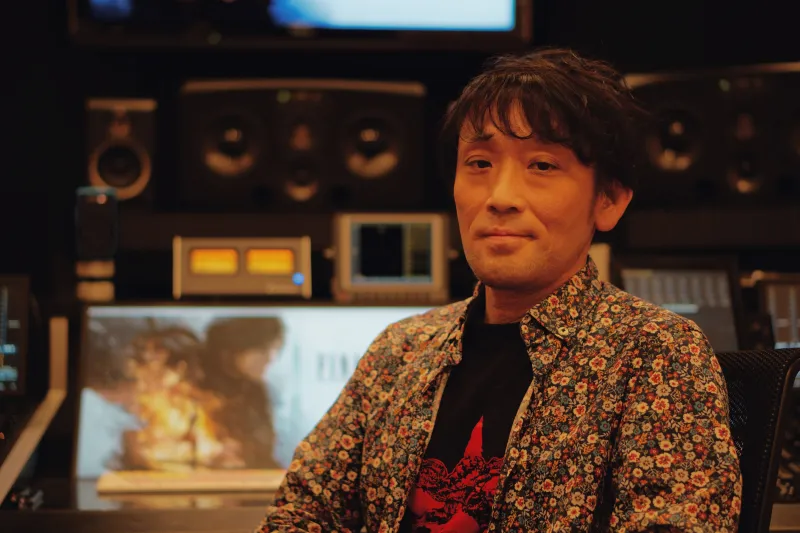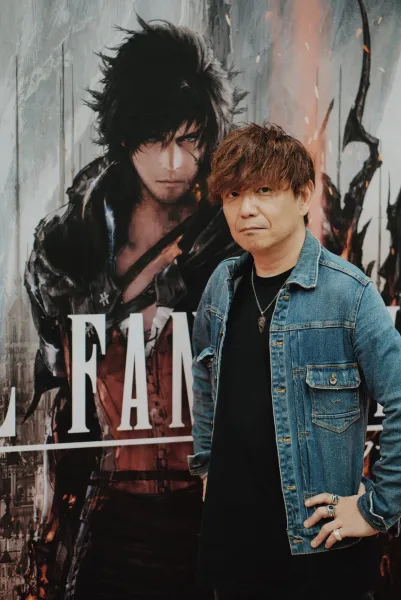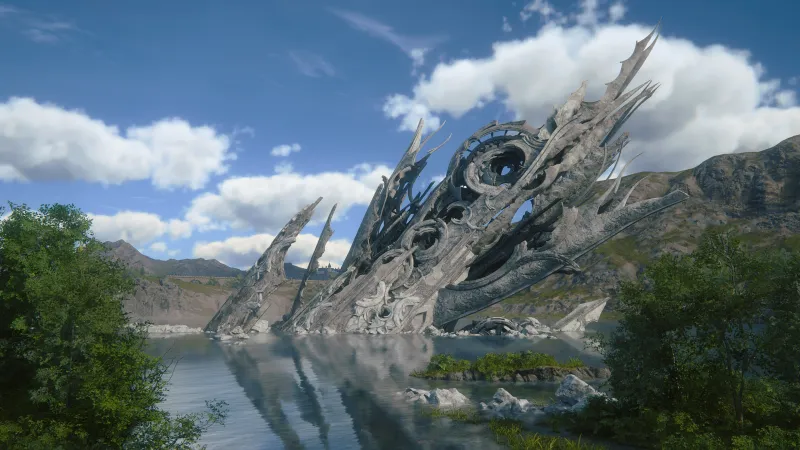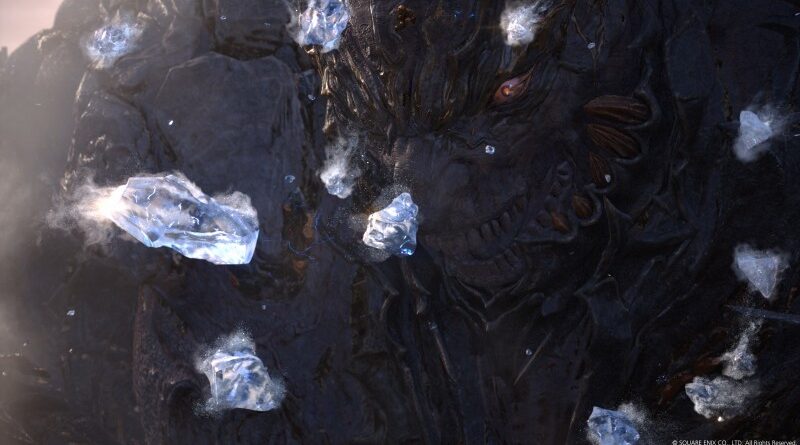The Music Of Final Fantasy 16: Part 4 – The Sound
For my money, one of the most interesting aspects of a game’s creation is the composition and orchestration of its music. With Final Fantasy, that’s doubly the case because for me, and I imagine for so many others, its soundtrack is one of its best parts. Be it lo-fi channels, new arrangements, compilations, piano versions, or something else, Final Fantasy music makes its way into many of my playlists.
That’s why I was so excited to chat with composer Masayoshi Soken about his score for Final Fantasy XVI. You might recognize his name as he’s also the composer of Final Fantasy XIV. Still, if you don’t, there’s a chance it’s a name you come to remember following the release of FFXVI because after spending more than three hours of hands-on time with the game in Square Enix’s Tokyo, Japan, office, I’m confident we’re about to get a banger of a score.

Final Fantasy XVI Composer Masayoshi Soken
In talking with Soken, I wanted to speak to him about some of the major themes and melodies of any Final Fantasy game – things like the Prelude, the main theme, the Victory Fanfare, and more – and he had plenty to say. In this four-part series, I’ll be breaking down different aspects of the music that excite me and hopefully you too.
Be sure to catch up on the first three parts here:
The Music of Final Fantasy XVI Part 4 – The Sound
Plenty of thought goes into creating key parts of a Final Fantasy score, like the Prelude and Victory Fanfare (you can read about that here), but just as much thought goes into the instrumentation of each of the 200-plus tracks in the soundtrack. I was curious about what musicians were playing to create the sound of FFXVI, how Soken went about this curation, and how the game’s themes play into these choices.
“I think for a lot of the themes for the Eikons, you’re going to get a lot of male chorus […] because we talked about how it brings that dark feel to it,” Soken tells me. “But I think there’s also a lot of brass instruments […] and strings […] as well, because you’re trying to get that dark, classical feel.”
From the jump, FFXVI producer Naoki Yoshida tasked Soken with creating a score that felt very classical and he remained true to that guidance throughout the composition…except for one song.

Final Fantasy XVI Producer Naoki Yoshida
“He didn’t want us to go off into too many tangents and go too crazy with it,” Soken says. “There was one battle with a certain Eikon and after playing it, I thought, ‘There’s no way I can do this in classical. I want to do something different. I want to step away from classical and do something entirely different.’ So I composed a piece that was totally not classical. And without telling anyone, I put it in the game and let the development team play it, and the feedback that I got was that they really, really liked it even though it wasn’t classical. They felt that it really, really fit the battle.”
Soken remained tightlipped on which Eikon fight he was referencing, but he did tease something I think will be of interest to those tuned into the FFXIV community: Not only did localization director Michael-Christopher Koji Fox write the lyrics featured on this track, but he also sang for it.
“That’s kind of embarrassing,” Koji says with a smile as Soken laughs along. “No one’s supposed to know that but yeah, there’s a couple that may have my vocal stylings.”
While I couldn’t pry much deeper, Koji says Soken provided his voice to that song as a backing track to Koji and in the final game, they’re mixed together.
You’ll also hear other familiar melodies within FFXVI, because Soken says, “There are a lot of tracks in the game that we drew inspiration from music from past Final Fantasies, including Final Fantasy XIV.” He wouldn’t share more with me, though, because if he did, he says it’d be a spoiler.
That speaks to the larger tone of music in FFXVI. Soken and his team didn’t go out of their way to choose a single instrument or style of music to define the score. Instead, it looked at the geography of Valisthea and the nations that call it home.

“We don’t want to say that this place equals this place in the real world,” he says. “For certain situations, we may have instances of Arabic origin or maybe instruments of Asian origin because they happen to fit that area or they happen to fit the situation and what’s going on in the cutscenes.”
He continues, stating that because FFXIV has such a large world, you can jump from many different types of themes and music depending on where you’re going. Whereas in FFXVI, he says the game features a focused story and that the team wanted to keep the core themes of the music to fit the story all the way through.
“We didn’t want to have these big jumps, so we have this main pillar […] of music, that classical pillar, and then from there, we’re going to be adjusting a little bit, we’re going to be having a little bit of fun with it in certain areas. But that main sound is going to fit and [it’s] going to go through the whole game; you’re not going to get these big jumps in styles of music.”
For more about the game, head to Game Informer’s exclusive Final Fantasy XVI coverage hub by clicking the banner below.





